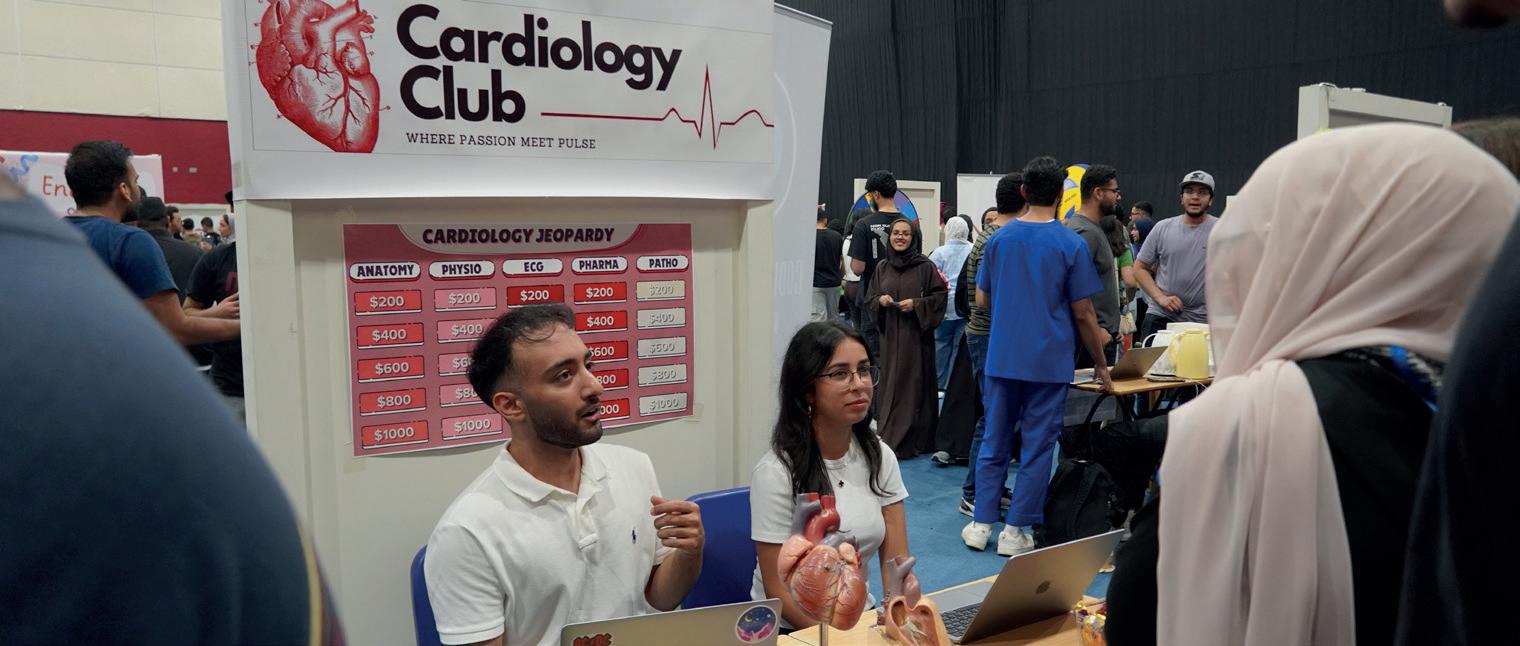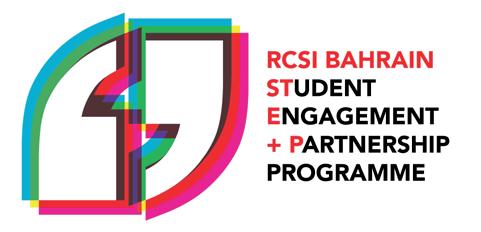





Welcome to RCSI Bahrain! Students have written this booklet to provide you with a guide to help you make a smooth transition into RCSI university life and successfully navigate your first year at RCSI and beyond. We want you to feel prepared and confident as you start your university journey.
Do you ever wish there were more hours in the day to get through your to-do list? And hey, we’ve all heard about striking the perfect balance between books and going out, but does anyone know how to nail it? If you’re nodding along, feeling like you’re in the same situation, fear not – you’re among friends here!
This incredible booklet is a project of the Student Engagement and Partnership programme (StEP), a collaboration between nursing and medical students, and the Centre for Student Success (CSS) at RCSI Bahrain. Consider it your go-to guide to university life while still having a blast with your classmates.
From getting prepped before your lectures to taking care of yourself when the going gets tough, we’ve got your back every step of the way.
While you are settling in to RCSI Bahrain, this booklet is here to make your journey smoother, easier, and fun.
So, grab a cuppa, kick back, and get ready to dive into a world of wisdom and good vibes. With this booklet by your side, we believe you will survive and thrive at RCSI Bahrain.

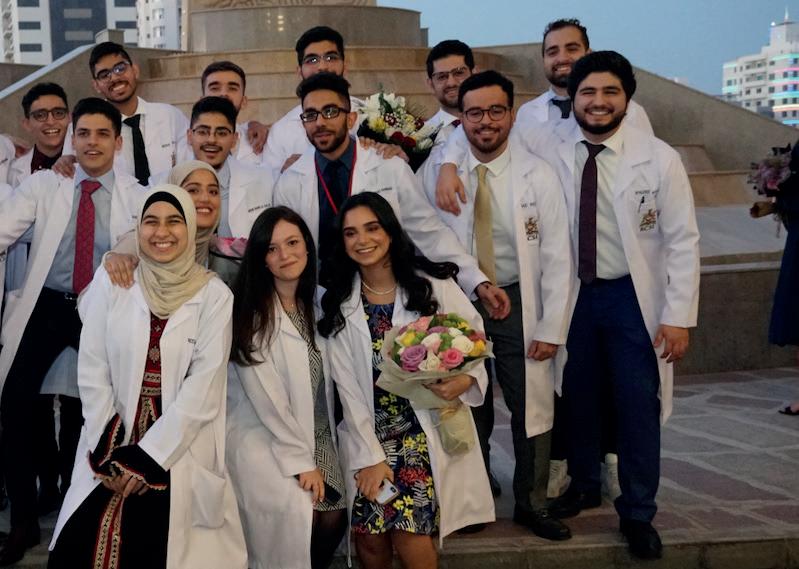
“

Embrace the freedom
Seize the opportunities
Let yourself be swept away by the excitement
Dive in, soak up every moment
Prepare for the adventure of a lifetime!
Transitioning from the familiar halls and classrooms of high school to the bustling energy of RCSI Bahrain University is like stepping into a new world of excitement! Imagine this: your timetable is packed with breaks between classes, giving you ample time to explore campus, connect with friends, or relax.
As an RCSI student, the support from lecturers and peers is outstanding. Lectures are well-directed and simplified, making complex concepts easier to understand. Labs are not just educational but also incredibly fun and engaging. Every practical session feels like an exciting discovery, with hands-on experiences that bring learning to life.
Transitioning from high school to university often involves a significant adjustment in academic expectations, independence, and social life. RCSI Bahrain University students are expected to take greater responsibility for their learning. While academic staff are available for guidance, students are generally responsible for attending classes, completing assignments, and seeking help to manage their time effectively.
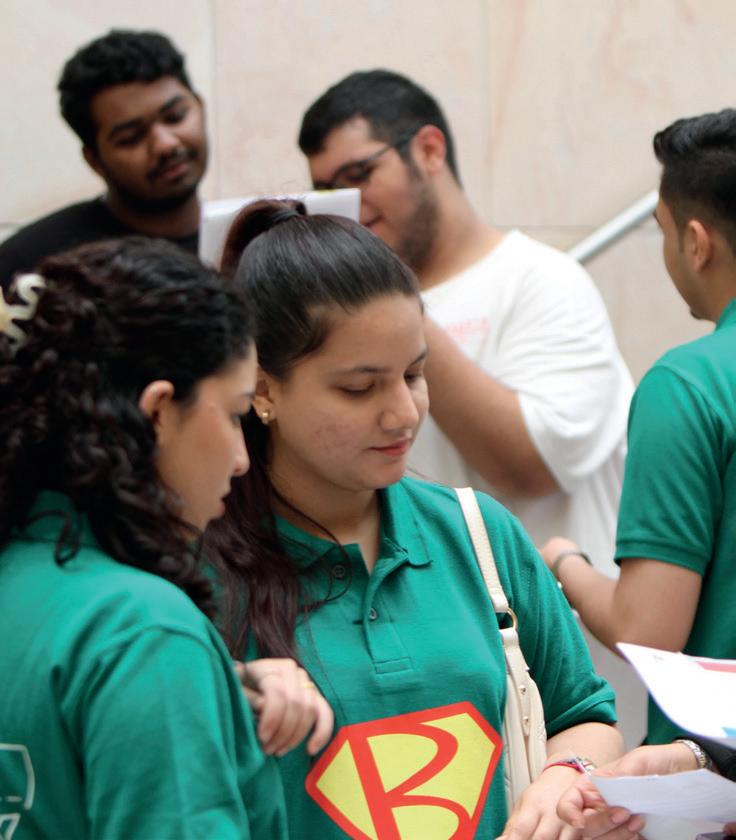
Who can help you?
Academic Advisors, Personal Tutors, Buddies, Mentors and Lecturers are always ready to help, offering guidance and encouragement every step of the way. Interacting with them, and other university departments, is invaluable! Regular meetings can help clarify challenging concepts and align you with your academic goals. Remember, they’ve been in our shoes and understand the struggles. We also emphasise the importance of seeking help when needed. Whether it’s from fellow students, lecturers, or the Student Health and Wellbeing team, reaching out for support can make a big difference when we’re overwhelmed. University is more than just classes; it’s a dynamic journey filled with new experiences, lifelong friendships, and personal growth. The transition might feel overwhelming at first, but that’s part of the thrill! You’ll find an environment with opportunities and supportive faces eager to help you succeed.
I know starting a new chapter can be exciting and scary. Trust me, I felt the same way when I first arrived. It’s like stepping into a whole new world of independence and possibilities. But let’s be real, it won’t always be sunshine and rainbows. The workload will increase, and you might sometimes feel a bit overwhelmed. That’s normal. FY Student
As you embark on this exciting journey, mastering the art of time management will be key to your success. It’s not just about juggling your academic responsibilities; it’s about making space for your personal growth and wellbeing. How can you efficiently manage your time, making the most of every moment?
Prioritise wisely and set goals:
• Understanding your priorities is the first step. Not everything demands immediate attention. Learn to differentiate between urgent tasks and important ones that can wait. This distinction will guide your scheduling, ensuring you focus on what matters first.
• Start by breaking down the high-priority goals into small steps and put them in the order that will make it easy for you to catch up with them one by one.
Organise your surrounding environment:
• You will save more time if you keep your working environment organised and be flexible with how you work.
• Keep only what you are working on in front of you so you will never feel lost with so many tasks.
Scheduling tips:
• A well-thought-out schedule can be a gamechanger. Allocate specific times for studying, classes, breaks, and activities. This helps maintain a healthy worklife balance, which is crucial for your mental and physical wellbeing.
• Identify the times of day when you are most productive, then schedule the “easier” tasks in your less productive period so you have time to focus on the “difficult” tasks at peak times.
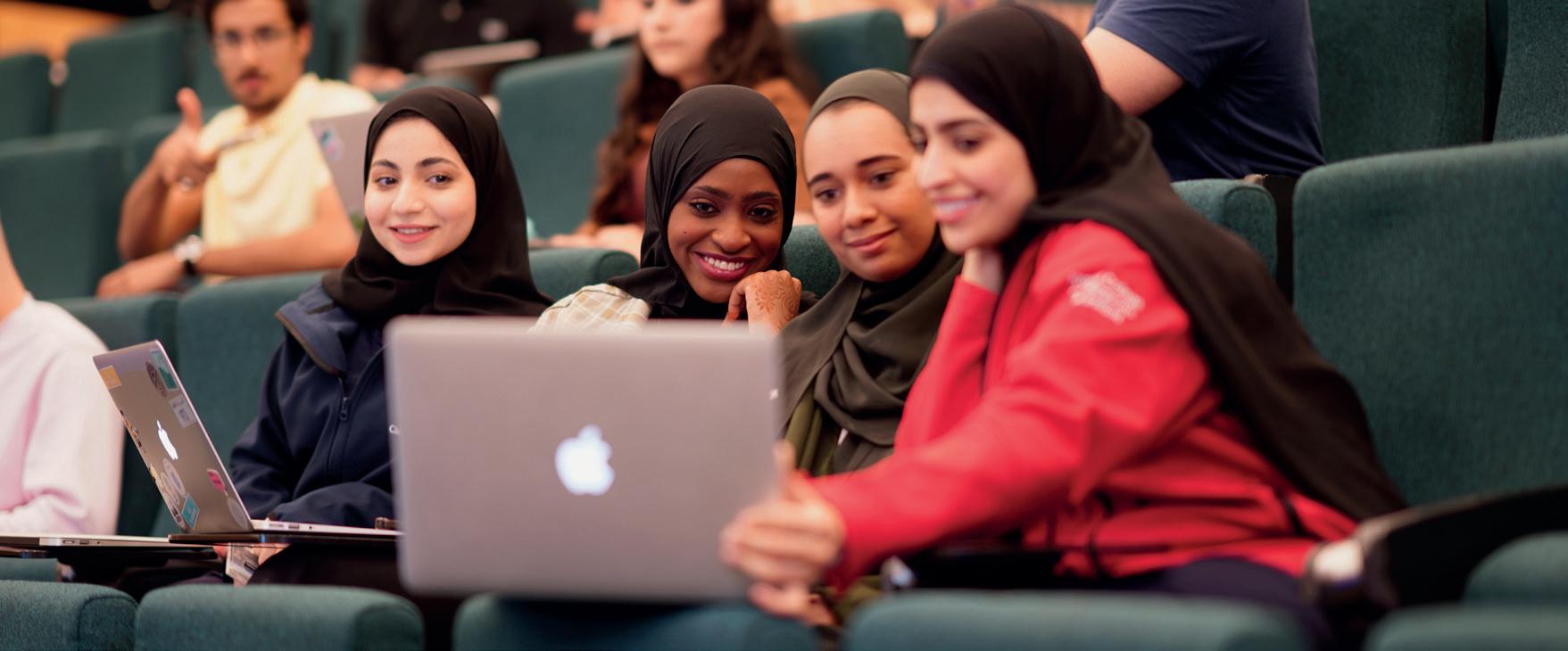
Time management apps:
• Embrace the digital age! Time management apps such as Notion or Google Calendly can be incredibly helpful in organising tasks.
• Utilising AI tools can further streamline your planning, offering personalised tips and reminders based on your learning habits and preferences.
Understand your learning style:
• Recognise that everyone has a unique way of learning. Whether you’re a visual learner, prefer reading/writing, or learn best through hands-on experience.
• Tailor your study time to fit your style, which ensures efficient use of your time and makes learning more effective and less timeconsuming.
“ How
can I effectively manage my time as a student to achieve academic success and personal fulfilment?
If you start to feel like you are losing focus – take a short break and return to the task. Remember, adequate rest is essential for your brain’s processing of information. Embrace these strategies, and you’ll survive and thrive in your student life. MCP Student

Studying medicine and nursing school can be a challenging journey, but you can make it manageable with the right strategies. Here’s what worked for us:
Note-Taking and Summarising: After each lecture, I find it super helpful to summarise the material in my own words. This forces me to really understand the content rather than just memorising it.

Another great method is Mind Mapping, where you visualise connections between concepts by branching out from a central idea. It’s especially useful when you need to recall information quickly.
One effective method is Cornell NoteTaking—divide your page into two columns, jot down main notes in the larger section, and use the smaller one for cues or questions. Don’t forget to summarise everything at the bottom.
Review Techniques: Spaced Repetition is essential for long-term retention. The idea is simple: review your material at increasing intervals, like 1 day, 3 days, then 7 days. It helps cement the knowledge in your brain.
For active recall, instead of just passively reading your notes, test yourself. Try the Anki app—it uses spaced repetition to help you retain information more effectively (Anki / Quizlet) .
How can I stay positive and motivated while studying?
Set both short-term and long-term goals, as this helps break down the larger task into smaller, more manageable steps. Reward yourself (with your favourite treat) when you achieve goals will keep you motivated during long study sessions.
Hope these tips help you navigate RCSI Bahrain! Remember, you’ve got this! MED1 Student
Handling difficult Assignments: Start your day with the hardest task. Trust me, it boosts productivity and sets a positive tone for the rest of your day.
Break down large assignments into smaller, manageable tasks. It makes the work seem less overwhelming and keeps you on track.
Attend Your Lectures:
We can’t stress this enough— attend your lectures! While there are many ways to study, nothing beats the clarity you get from being in class and asking questions on the spot.
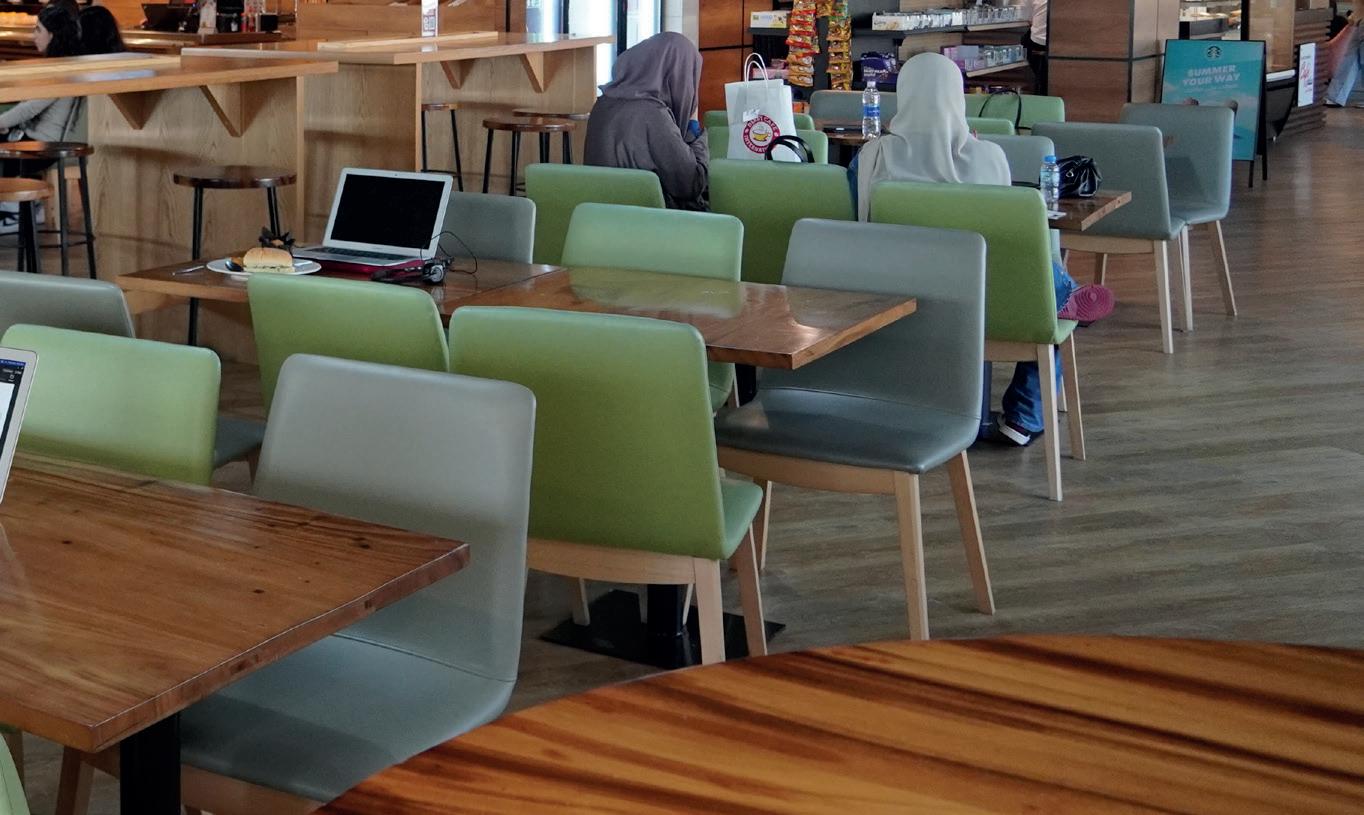
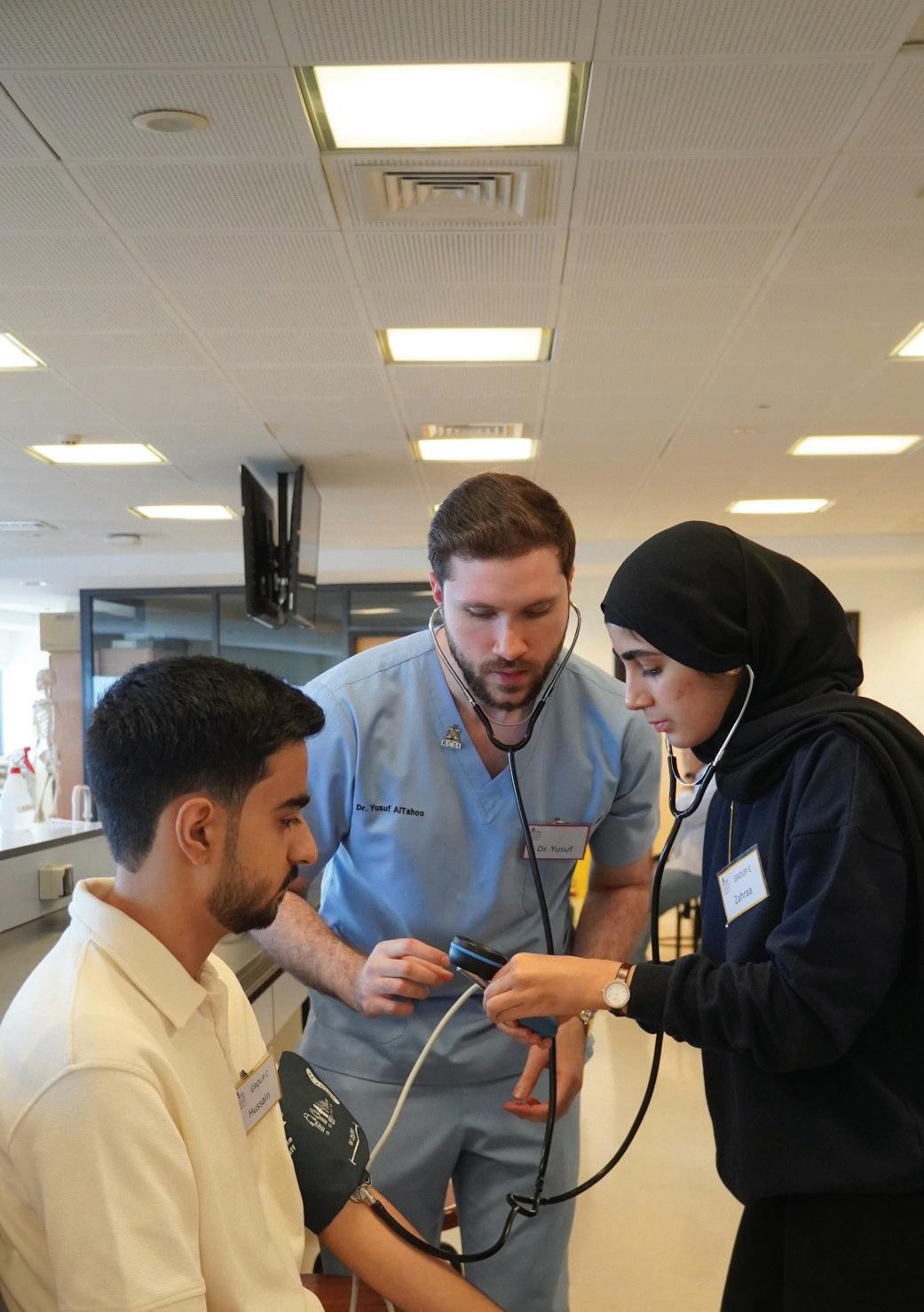
Study Groups: Don’t underestimate the power of a good study group. Teaching others is one of the best ways to solidify your understanding. Everyone brings something different to the table, and you’ll have a much broader understanding of the material.
Exam Prep: Practice tests are your best friend. They help you get familiar with the format and timing. Use all the resources your lecturers provide, especially those in the VLE.
Never hesitate to ask for help if you’re struggling with a topic. Whether it’s your lecturer or a study group, there’s always someone willing to help.
Before the lecture:
• Active Preview: Spend 30 minutes before each lecture reviewing the slides. Instead of passively reading, anticipate the key points and create questions you’d like to ask. This will help you engage more actively during the lecture.
During the lecture:
• Focused Listening: Pay close attention to the lecturer’s explanations. Take concise notes that capture the main ideas and any crucial details. Don’t hesitate to ask questions if anything is unclear.
After the lecture:
• Active Review: Allocate 30 minutes after each lecture to compare your understanding with what you learned.
• Organise your notes into a logical structure. This could involve creating outlines, diagrams, or summaries.
• Identify Strengths and Weaknesses: Analyse your performance in each module to identify areas where you excel and need improvement. This will help you tailor your study methods to your specific learning style.
• Given the abundance of new vocabulary, create flashcards or use mind maps to visually organise and remember critical terms.
• Develop a timeline or table to visualise the different stages of growth and development across various age groups. This will help you see the connections between different concepts.
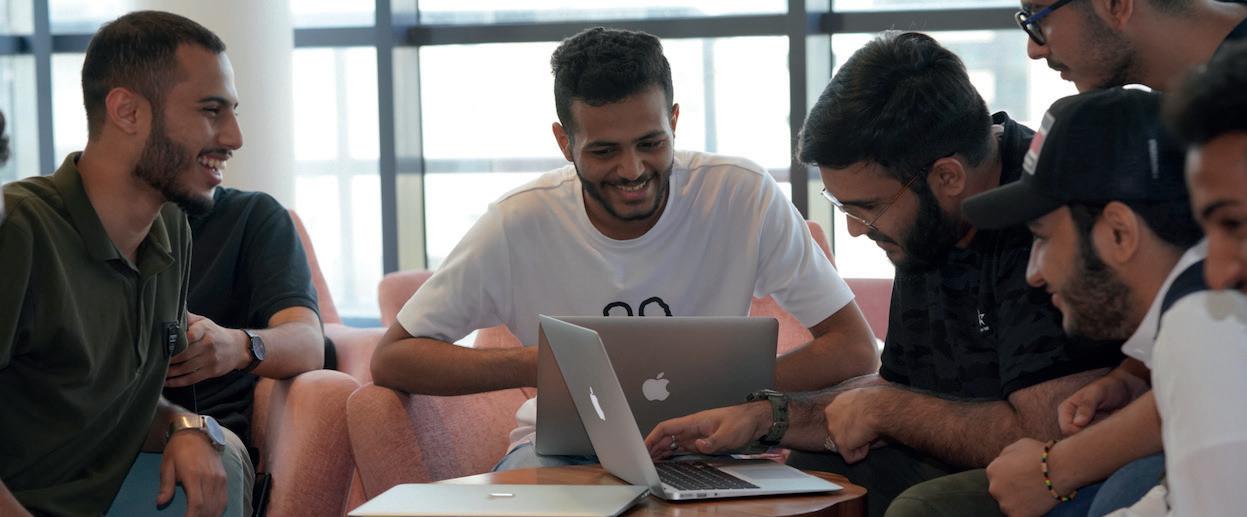
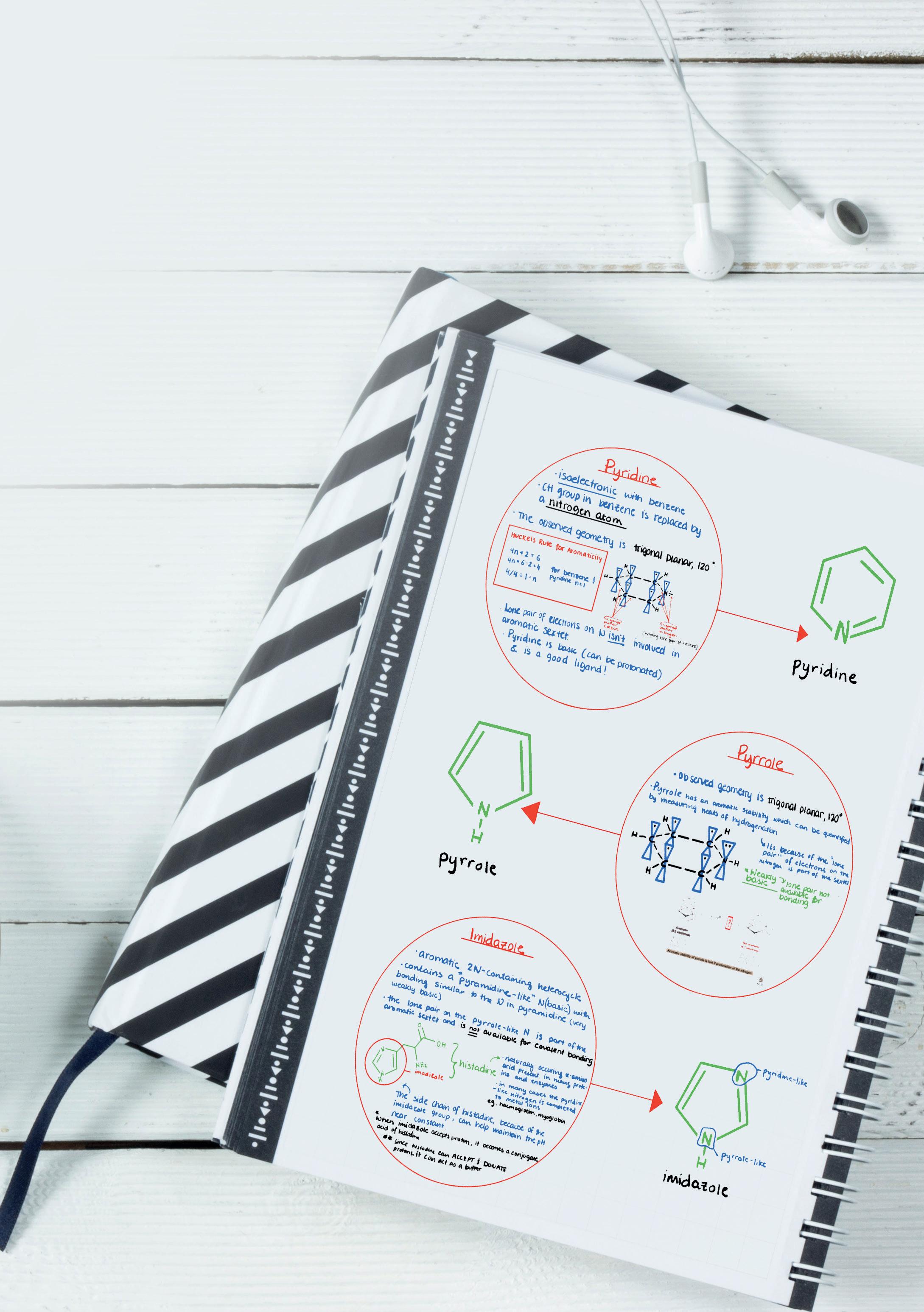
• Find a Study Group: Collaborating with classmates can enhance understanding and provide different perspectives.
• Practice Regularly: Consistent review and practice are essential for long-term retention.
• Take Care of Yourself: Ensure you get enough sleep, eat well, and manage stress to optimise your cognitive function.

A student’s guide to Wellbeing
Medical and Nursing students are often associated with a specific image: the exhausted individual. However, this stereotype is not entirely accurate. While the demanding nature of medical and nursing education can be taxing, many students successfully balance academic rigour and personal wellbeing.
Let’s hear from fellow medical and nursing students about their experiences and how they balance their academic and personal lives.
Nourishing Your Mind and Body: A healthcare student’s guide
As future healthcare professionals, your mental and physical wellbeing are important. A healthy body can support a healthy mind, allowing you to excel in your studies and future career. One of the most crucial aspects of maintaining good health is nutrition and sleep.
Where can I train in RCSI to escape pressure and energise myself?
The Hub offers various options, from group classes to personalised training. Choose the option that best fits your lifestyle, and let’s make those 10 minutes count! My university experience was defined by the freedom to pursue sports and self-expression. I felt a strong sense of community, especially through badminton, which led to lifelong friendships and enjoyable experiences. N1 Student
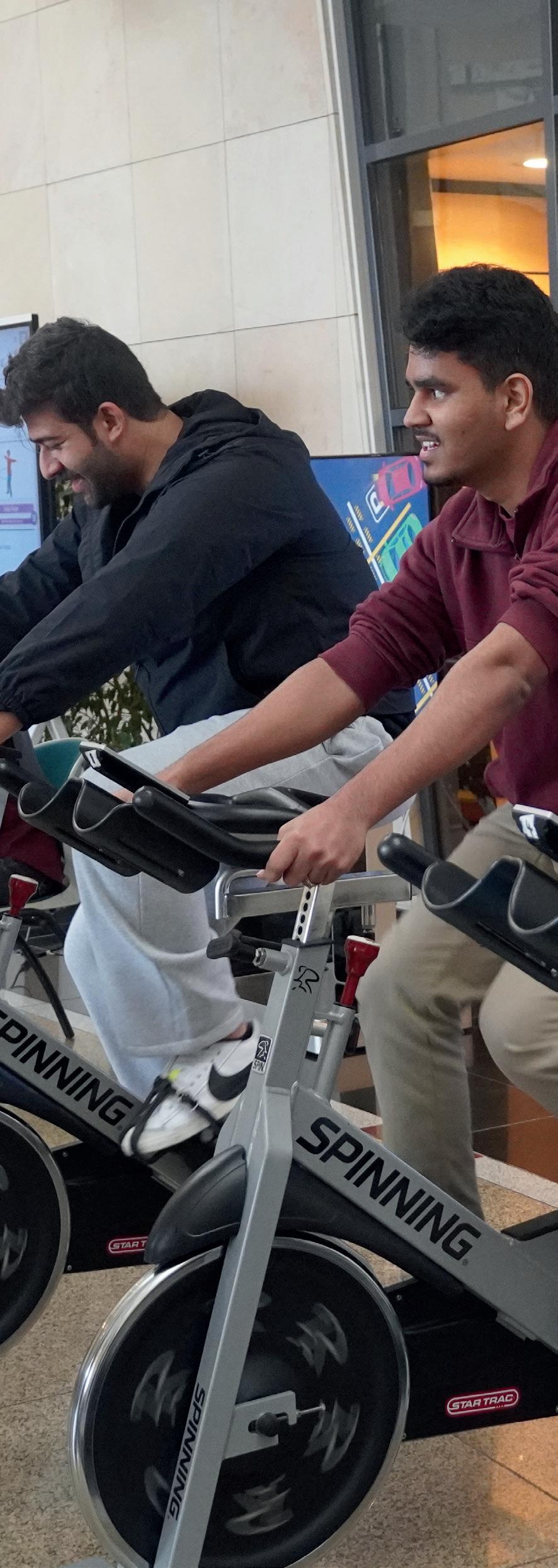
• Make a weekly plan for groceries that includes protein and vitamins. Try preparing food during the weekend (don’t worry, with proper storage, it doesn’t go bad!).
• When in doubt, sugar and fast food are not your knights in shining armour. Try to use what you have before resorting to takeout.
• Pulling an all-nighter does you more harm than good. Get those 8 hours of sleep, and you’ll see how focused and active you’ll become.
• Limit your energy drinks and caffeine intake, as they can dehydrate you and affect your sleep. PS: Water or fresh juice is always an option.
• If it’s difficult to fall asleep due to anxiety, play some sounds of nature to relax. Avoid using gadgets half an hour before bedtime.

Being academically driven can be demanding and stressful. It’s crucial to prioritise your emotional wellbeing to cope with the workload and maintain a healthy balance. Here are some tips to help you navigate the challenges of university life:
• Dedicate one day a week to yourself, despite how busy you are. And do something fun, like watch movies, because why not??
At RCSI, the people you see on campus are the same ones you see off campus, which makes socialising a LOT easier, you need to have an open mind. Easier said than done, I know, but here is where you can start!
• The social mixer. It may be awkward at first but once you start talking it gets easier. There’s also the Clubs and Societes fair, which is great for meeting others with mutual interests.
• Meditate. As an RCSI student, you get a free Headspace subscription, and we love anything free! Find your happy place. Mine is home, with a beautiful distracting view, yours could be the beach... Any place works, no wrong answers here.
• Remember this is university, your grades might fluctuate and that’s okay, you’re smart and that’s why you’re here.
• Contact the Student Health and Wellbeing team for confidential advice.
• The cafeteria isn’t the only hangout spot in Bahrain. Tourist attractions include the Tree of Life, the National Museum. You could leave for a weekend trip to the nearby Al Dar islands.
• Volunteer. It’s rewarding. For example, the Teddy Bear Hospital initiative organised by Community Engagement is a terrific way to do good things for others.
• Clubs and societies on campus have events weekly hosted by students for students. This makes socialising a LOT easier.

• Create a budget and stick to it; don’t lose track of your spending. Also, keep an emergency fund for urgent situations. Always make sure it’s enough.
• Look for offers. As an RCSI Bahrain student, you get an iWorld discount on gadgets. You can also get discounts using your Unipal ID. It makes my bank account happy.
• If you share accommodation, check out the roommate guidelines.
How can I balance planning and spontaneity to promote my wellbeing?
You could have a flexible approach with room for unplanned moments to balance planning and spontaneity for maximum wellbeing. This allows you to enjoy the benefits of both structure and spontaneity, leading to a more fulfilling and balanced life. MED2 Student
Here’s to new adventures, lifelong friendships, and an RCSI Medical University of Bahrain experience you will never forget!
Editorial Student Team:
• Mehrunisa Bilal (FY)
• Aseel Abdulmenem Yahya Mogbel Abuasel (MED1)
• Jumana Atef Abouelfetouh Allam (MED1)
• Nathania Keny (MED2)
• Asma Fathi Ali Naser Khalaf Alatawi (N1)
• Wejdan Hasan Ali Darwish (N1)
• Erica Yadav (MCP)
